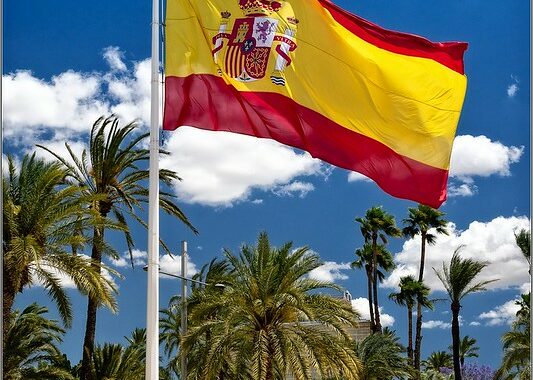Protests Erupt in Spain Over Catalan Amnesty Negotiations
by Patrick Wilson
MADRID, SPAIN – For a second consecutive night, protests have erupted in Spain as demonstrators express their opposition to the acting government’s negotiations with Catalan separatist parties over a possible amnesty for thousands of secessionists in the northeastern region. The demonstrations, which have turned violent in some cases, highlight the deep divisions within Spanish society over the issue of Catalan independence.
Background to the Protests
The protests stem from the acting government’s efforts to secure the support of Catalan separatist parties in forming a new government following inconclusive national elections in July. In exchange for their votes, the separatist parties have demanded a sweeping amnesty that would cover those who fled Spain after their failed 2017 secession attempt.
This demand has been met with strong resistance from many Spaniards, including leading opposition parties on the right, who view it as an unacceptable concession to lawbreakers. The Popular Party, the main opposition party, has called for its own protest against the amnesty negotiations for Sunday.
Details of the Protests
On Tuesday, protesters gathered outside the national headquarters of the ruling Socialist Party in Madrid, waving Spanish flags and shouting insults against acting Prime Minister Pedro Sánchez. Some protesters even self-identified as “nazis” in their chants.
Police responded to the protests by erecting barriers and using rubber bullets and batons to disperse the crowd. Several protesters were arrested.
Similar protests occurred in other Spanish cities, including Barcelona and Valencia.
Reaction to the Protests
Sánchez has condemned the protests, calling them a display of “reactionary” behavior. He has also expressed his support for Socialist Party members who have been harassed at their local headquarters.
Vox, the far-right party that holds the third-most seats in the national Parliament, has said that it does not support the violence seen at the protests but does back the anti-government sentiment. Vox’s leader, Santiago Abascal, attended Monday’s protest in Madrid.
Implications of the Protests
The protests highlight the deep divisions within Spanish society over the issue of Catalan independence. The amnesty negotiations have further inflamed tensions, and it remains to be seen whether Sánchez will be able to secure the necessary support to form a new government.
The protests also raise concerns about the potential for further unrest in Spain. If the amnesty negotiations fail, it could lead to renewed calls for independence from Catalonia and potentially further violence.
The protests in Spain over the Catalan amnesty negotiations are a sign of the deep political and social divisions that exist in the country. The outcome of these negotiations could have significant implications for the future of Spain, and it is important to monitor the situation closely.
** This piece was created with the help of ai.
